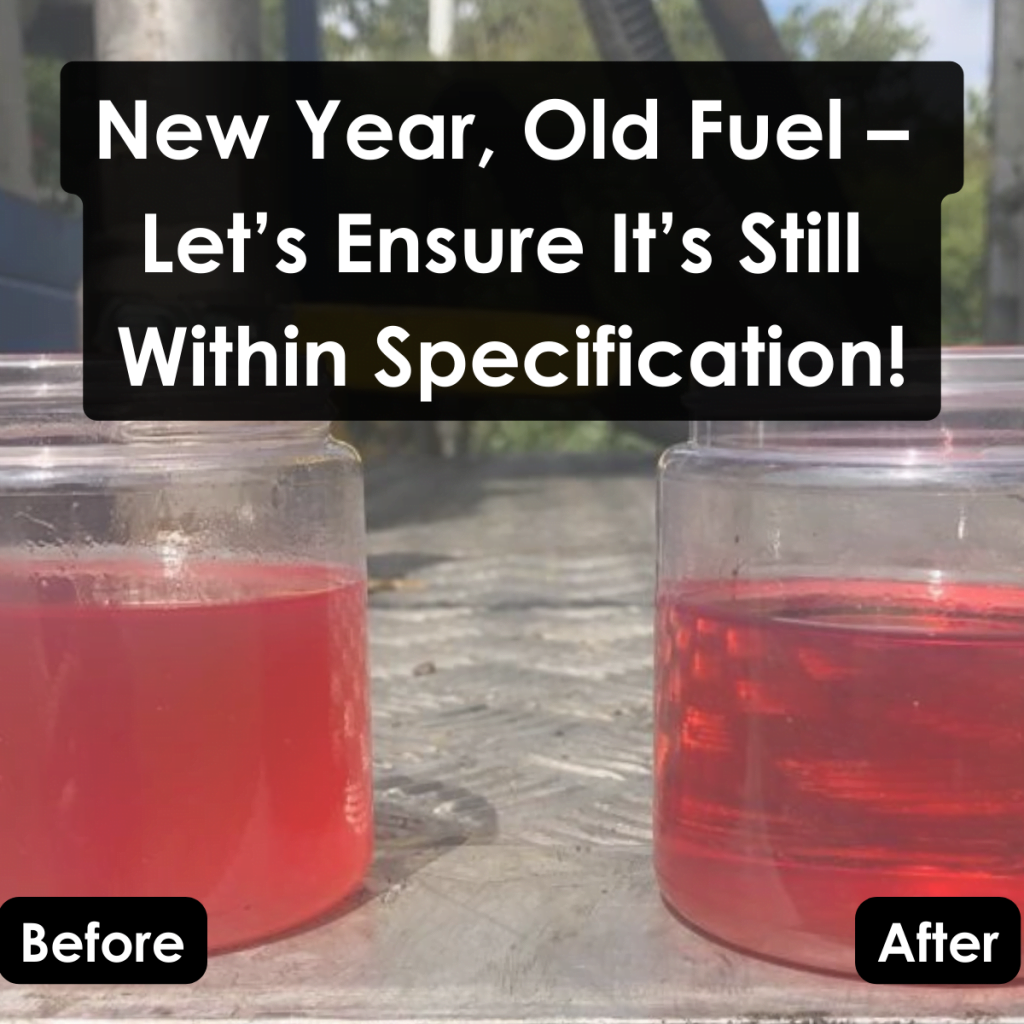
New Year, Old Fuel – Let’s Ensure It’s Still Within Specification!
Let’s start the new year right and ensure that your fuel infrastructure is up to par – whether you are in transportation, manufacturing, emergency power generation – or any industry in between, the quality of your fuel has a direct impact on the performance of your engines and equipment.
Having safe and compliant fuel tanks is crucial for your business’ optimal performance – otherwise, you could have malfunctioning engines, reduced efficiency, and increased emissions on your hands.
The quickest and easiest way to ensure that your fuel is within the right specification is to have us take samples from your fuel tanks; or send the samples to us yourself, if that’s your preferred method.
LCM partners with UKAS–accredited laboratories who would then test the fuel on our behalf. The results will be sent to you by one of our account managers, who will walk you through the next steps and recommendations, making the process simple and easy to understand.
The Traffic Light System
Analysing your fuel for high water content, contaminant levels, octane or cetane levels (amongst other things), you receive a report based on the traffic light system.
Green indicates that your fuel is within specification and no action is required.
Yellow means that some of the analysed levels are higher than normal. No immediate action is required, but monitoring is recommended.
Amber indicates that action is required as your fuel contamination levels are high and backup power malfunction is possible.
Red shows us that you need our help immediately; your fuel is practically unusable. We need to discuss your options, which could vary from fuel polishing to uplift and a new supply, depending on the degree of decay and quantity of fuel.
Having your fuel sampled and tested every 6 to 12 months should be an essential part of your preventative maintenance plan. If contamination is in its early stages, LCM can help you avoid costly repairs, business downtime and malfunction of engines and equipment.
Cost savings are not the only reason to employ a proactive approach when it comes to your fuel environment – it also boosts your environmental responsibility score. Clean fuel produces less emissions and helps reduce your carbon footprint. This shows your commitment to environmental stewardship and helps your ESG reporting.
A new year shouldn’t necessarily mean a whole new fuel supply for your business – not when 9 times out of 10 we can salvage your current supply. Let us help you achieve long-term cost savings and minimise your environmental impact.
You can always get in touch with us at…
T: 0808 164 4570

